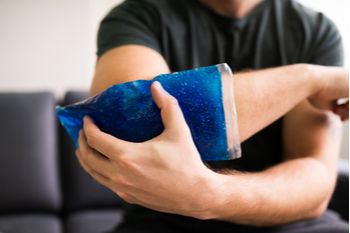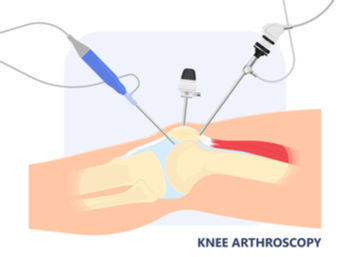Orthopedic Conditions
Why Do Arthritis Patients Suffer Immensely Despite Consulting Numerous Doctors?
3 min read
By Apollo 24|7, Published on - 28 June 2022, Updated on - 18 October 2022
Share this article
0
0 like

Did you know, the word arthritis is derived from the Greek word “arthron”, which means joints, while “itis” means inflammation. Arthritis is an inflammatory condition that can affect anyone but is more prominently seen in women. Research shows that more than 500 million people suffer from arthritis globally. While the disease is very common, the cure has not been fully understood yet. Let us understand more about the causes of arthritis and the ways to manage it.
What causes arthritis?
There are more than 100 types of arthritis, out of which the cause of most of them have not been found yet. Furthermore, the cause of arthritis may vary depending on the type, but some of the common causes include:
- Overuse or wear and tear of the joints (osteoarthritis)
- Immune system attacks the body’s tissues (rheumatoid arthritis and lupus)
- Build-up of uric acid crystals in the joints (gout)
- Family history of arthritis (osteoarthritis)
Recommended reading: Gout: Causes, diagnosis, and management of this severe form of arthritis
How to know if you have arthritis?
While the symptoms of arthritis depend on the type, the common bone-related symptoms include:
- Pain, swelling, and inflammation in and around the affected joints

- Stiffness in more than one joint
- Red and warm skin over the affected joint
- Inflammation in and around the joints
- Restricted movement of the affected joint
While arthritis is believed to be a bone disease, it can also damage the heart, eyes, lungs, kidneys and skin. Along with bone-related symptoms, the affected person can also experience weakness, high temperature, fatigue, and weight loss.
Why do patients with arthritis experience great suffering?
Despite advances in technology, arthritis is incurable. Every medical treatment has significant limitations, therefore, people must not stop the treatment after getting short-term temporary gains. It is important to understand that arthritis is a chronic condition that can only be controlled by long-term management.
How is arthritis treated?
The treatment of arthritis aims at relieving pain, increasing joint mobility and strength, and preventing disease progression. Measures that can help manage the condition effectively include:
- Medications: Patients can use pain killers such as paracetamol and ibuprofen to reduce pain and inflammation in the joints. Doctors may also prescribe DMARDs (Disease-modifying anti-rheumatic drugs) and corticosteroids, which can slow down the progress of the disease. Corticosteroids reduce inflammation and swelling.
- Hot and cold therapy: People may find heating pads or ice packs beneficial in reducing pain and swelling in the joint.

- External devices: The doctors may recommend the use of a splint or brace to immobilize the joint and protect against further injury.
- Electrical stimulation: Transcutaneous electrical nerve stimulation (TENS) therapy provides mild electrical stimulation to the nerves present in the painful area to provide relief.
- Surgery: Surgical procedures such as arthroscopy or joint replacement can be recommended in the case of complete loss of function.

Recommended reading: Natural Ways To Get Relief From Arthritis
Arthritis is a disabling disease that can cause swelling, chronic pain, stiffness and reduced range of motion in the joints, which can make it difficult to even walk or climb stairs. While the symptoms may not progress immediately, they can get worse over time. There is no cure for arthritis, however, if diagnosed accurately it can be managed with exercise, hot and cold compression, assistive devices, and relaxation therapies. People experiencing signs of arthritis must consult a bone specialist (orthopaedic doctor) for further investigation.
To book an appointment with an orthopaedic doctor,
Medically reviewed by Dr Sonia Bhatt.
Orthopedic Conditions
Leave Comment
Recommended for you

Orthopedic Conditions
Exploring the Link Between Celiac Disease and Osteoporosis
People with untreated celiac disease may develop a very low bone density, leading to a condition called osteoporosis that increases the risk of fractures.

Orthopedic Conditions
Rheumatoid Arthritis (RA): Symptoms, Risk Factors, Diagnosis, Treatment & Complications
Rheumatoid arthritis (RA) is an autoimmune disease that causes joint pain, swelling, and stiffness. Discover the symptoms, risk factors, diagnostic methods, and potential complications associated with RA for effective management of the chronic health condition.

Orthopedic Conditions
Delay Ageing of Your Knees with These Expert Tips by Apollo’s Orthopaedician
Pain in the knee is one of the most common orthopaedic issues experienced by people as they age. Know what causes the knees to age faster and result in pain.
Subscribe
Sign up for our free Health Library Daily Newsletter
Get doctor-approved health tips, news, and more.
Visual Stories

How to Keep Your Bones Strong and Healthy Naturally
Tap to continue exploring
Recommended for you

Orthopedic Conditions
Exploring the Link Between Celiac Disease and Osteoporosis
People with untreated celiac disease may develop a very low bone density, leading to a condition called osteoporosis that increases the risk of fractures.

Orthopedic Conditions
Rheumatoid Arthritis (RA): Symptoms, Risk Factors, Diagnosis, Treatment & Complications
Rheumatoid arthritis (RA) is an autoimmune disease that causes joint pain, swelling, and stiffness. Discover the symptoms, risk factors, diagnostic methods, and potential complications associated with RA for effective management of the chronic health condition.

Orthopedic Conditions
Delay Ageing of Your Knees with These Expert Tips by Apollo’s Orthopaedician
Pain in the knee is one of the most common orthopaedic issues experienced by people as they age. Know what causes the knees to age faster and result in pain.